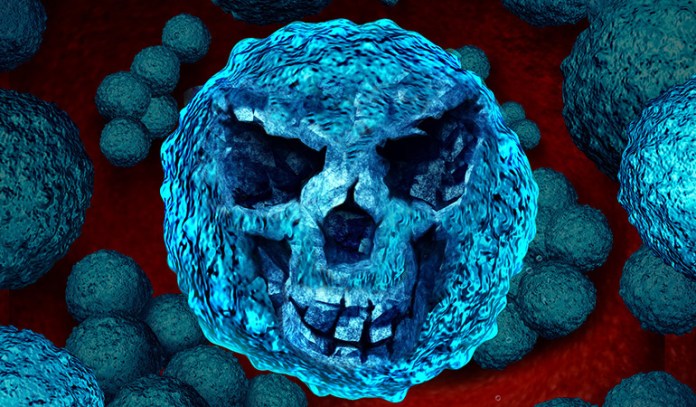The monk fruit plant (Siraitia grosvenorii) is a creeper in the gourd family native to southern China and northern Thailand, where it has been used for thousands of years as a medicinal remedy for many diseases and as an artificial sweetener. The monk fruit, also called luo han guo, is popular for its sweetness, which can be concentrated from its juice. It is an excellent replacement for sugar and other artificial sweeteners.
The fruit contains different carbohydrates, mainly fructose and glucose and the sweetness of the fruit is enhanced by the mogrosides, which are a group of triterpene glycosides. While the pulp of the fruit is eaten fresh, the bitter rind is used in the preparation of tea. Though it is harvested as a round, green fruit, it soon turns brown when it’s dried.
Here are some of the major health benefits of monk fruit.
1. Prevents Heart Disease

A study conducted to analyze the effect of monk fruit extract on diabetic mice found that mogrosides contain properties that can improve blood sugar response. In addition, it also controlled the side-effects related to high cholesterol.1
It achieves this effect by protecting the cholesterol from oxidation, which is a frequent cause of arterial plaque accumulation.2 Moreover, monk fruit extract may even aid cardiovascular health by promoting an increase in HDL cholesterol.
2. Slows Aging

The relationship between mitochondrial health and aging is a factor that controls aging in the human body.3 Mitochondria are tiny structures within each cell in our body that are chiefly responsible for producing energy. Your health can be impacted adversely if the mitochondria begin to malfunction.
Since the DNA of mitochondria are very fragile, antioxidants are essential as they prevent damage to the DNA from free radicals. Mutation of the mitochondrial DNA makes you vulnerable to mitochondrial malfunction, which can result in intense internal stress, increased inflammation, rapid tissue degeneration, and eventually faster aging.
Consuming monk fruit, which is rich in antioxidants helps in controlling inflammation and better regulation of antioxidant systems in the body. This, in turn, can ensure mitochondrial health by safeguarding the DNA from oxidative stress.4
3. Reduces Inflammation

Chemical compounds called mogrosides present in monk fruit extract may help in protecting the tissues in the body from free radical damage, which is a prominent cause of inflammation.5 This property of the monk fruit helps in controlling the body’s inflammatory response caused due to sugar consumption.
Another study has found that this antioxidant property can protect the insulin-secreting cells of the pancreas and as a result, improve insulin response.6 Additionally, it provides anti-inflammatory effects by regulating the blood sugar levels.
4. Inhibits Fibrosis

Pulmonary fibrosis is a condition where the tissues of the lungs become scarred and rigid. This condition obstructs your normal breathing and prevents effective absorption of oxygen from the air.
In a research that was conducted, it was observed that mogroside IIIE isolated from monk fruit is a potential anti-fibrotic compound with significantly beneficial results. The study found that mogroside IIIE may perform an anti-fibrotic role by controlling inflammation and regulating cellular matrix deposition.7
5. Relieves Allergies

Certain cells within your body are responsible for stimulating inflammatory responses called a histamine response, which is mediated by mast cells. In a study conducted on lab mice, the administration of monk fruit extract over a period of four weeks resulted in a significantly lower histamine-response to allergens.8
But, this effect was not noticed when just a single dose was administered to the mice. So, this finding suggests that regular consumption of monk fruit sweetener can offer allergy relief to an extent.
6. Fights Cancer

Accumulation of DNA damage by free radicals is a leading cause of cancer. Optimizing the levels of antioxidants in the body can help significantly lower the extent damage to the DNA, which helps lower your risk of cancer. Ever since mogrosides in monk fruit have been studied for their antioxidant properties, scientists have found some promising cancer-related research in which mogrosides have displayed anti-cancer effects.
One particular study observed that mogroside V was effective in inhibiting the rapid progression of pancreatic cancer cells in mice.9 In another analysis, it was found that mogroside V had similar effects on both colorectal and throat cancers.10
7. Combats Obesity

According to research, in addition to reducing or avoiding sugar from your diet to maintain a healthier metabolism and body composition, consumption of monk fruit may further help the cause.
A study conducted in 2016 to analyze the effect of mogrol, an aglycone of mogrosides from monk fruit, on fat accumulation found that it suppressed the differentiation of pre-adipocytes (pre-fat cells) into mature adipocytes (fat cells).11 This can help in reducing the body’s ability to increase overall fat mass.
8. Provides Anti-Microbial Benefits

Sugar intake is known to feed unwanted microbes present in the intestinal tract. But, monk fruit compounds display beneficial anti-microbial properties that may help maintain an ideal bacterial balance. The non-toxic extracts from the fruit and leaves have shown to inhibit candida, streptococcus, and bacteria responsible for gum disease in the mouth.12 13
Substituting sugar with chemical sweeteners such as sucralose or aspartame does not provide the same benefit as these artificial sweeteners adversely affect the health of our gut bacteria and may lead to unwanted microbial growth.
References





